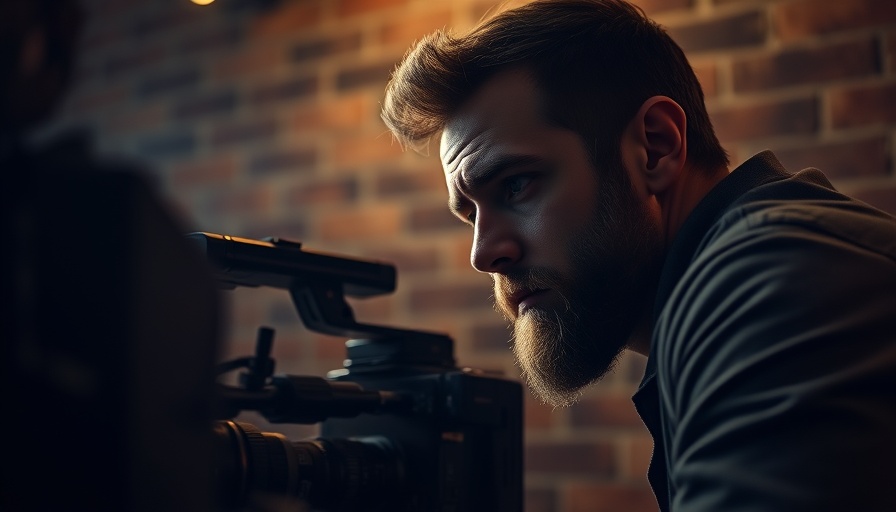
Robert Eggers: The Visionary Behind a Darker Christmas Carol
When you think of A Christmas Carol, the timeless story by Charles Dickens often conjures images of festive cheer and heartwarming redemption. However, Robert Eggers, the acclaimed filmmaker known for his psychologically intense horror films like The Witch and Nosferatu, is set to redefine this classic tale, introducing a distinctly darker twist that is sure to captivate audiences in unexpected ways.
What to Expect from Eggers’ Adaptation
Reports indicate that Eggers is currently in talks with Warner Bros. to adapt A Christmas Carol into a feature-length film. Fans of his previous works can anticipate his signature style that blends horror with period drama, characterized by meticulous attention to detail. With Eggers behind the camera, the iconic ghostly apparitions—like Jacob Marley and the three spirits—may morph into eerily haunting figures that reflect his unique vision. This adaptation is expected to live up to his reputation for creating unnerving atmospheres and disturbing narratives.
Willem Dafoe as Ebenezer Scrooge: A Role Made for Him
While details surrounding the casting remain under wraps, the possibility of Eggers' frequent collaborator, Willem Dafoe, stepping into the role of Ebenezer Scrooge is particularly exciting. Dafoe’s impressive range—from villains to tragically complex characters—makes him an ideal candidate to portray Scrooge’s grim transformation from miser to a man rejuvenated by the joy of Christmas. The interplay between Dafoe’s acting chops and Eggers’ direction could result in a portrayal of Scrooge that is rich with emotional depth.
Historical Context: The Evolution of A Christmas Carol
Over the years, A Christmas Carol has been interpreted and reimagined countless times across various media, from comedies and animations to dramatic retellings. It has been transformed into family-friendly films like The Muppet Christmas Carol and darker takes such as Scrooged featuring Bill Murray. Each iteration reflects the era's cultural values and anxieties, but Eggers' version aims to delve into the darker aspects of the narrative, emphasizing themes such as guilt, loss, and human fallibility.
A Deeper Look into Eggers’ Style
Eggers has established himself as a master of atmospheric storytelling. His films often explore psychological horror rooted in historical settings, drawing audiences into meticulous recreations of time and place. In the same vein, his version of A Christmas Carol is expected to be visually arresting, utilizing strong production design to evoke the Victorian era’s gloom and melancholy. Expect breathtaking sets and hauntingly beautiful cinematography that could transform the familiar streets of London into a ghostly backdrop for Scrooge’s tumultuous journey.
Market Trends: Horror’s Popular Resurgence in Cinema
The current film landscape indicates a growing appetite for darker reinterpretations of classic stories. With the success of other recent horror adaptations, audiences are willing to engage with the unsettling narratives, leading to the resurgence of horror in mainstream cinema. Eggers' unique vision in tackling a beloved yet darker version of A Christmas Carol signals a potentially lucrative interest from both critics and audiences alike.
The Future: A Scary Christmas?
If all goes as planned, audiences may see Eggers' version of A Christmas Carol in theaters by Christmas 2028. Fans of both Eggers and Dickens have high hopes that this adaptation will introduce a fresh, chilling perspective on the age-old tale, possibly even paving the way for future adaptations of classic literature through a horror lens.
Final Thoughts: Why This Adaptation Matters
The melding of classic literature with unconventional storytelling by directors like Eggers could reinvigorate public interest in traditional narratives while appealing to a new generation of viewers. As this adaptation progresses, it will likely prompt discussions not only about Dickens' timeless themes but also about how they resonate in today's society.
Robert Eggers' A Christmas Carol isn’t just another remake; it’s an opportunity to explore a deeper, more psychological discussion of one of the most famous stories in Western literature. With his unique vision, audiences can expect to see a version of Scrooge's redemption that is both haunting and heartbreaking.
 Add Row
Add Row  Add
Add 




 Add Row
Add Row  Add
Add 
Write A Comment